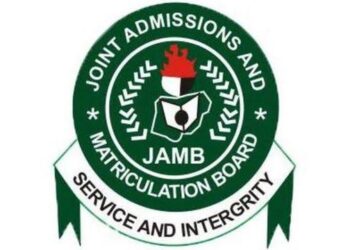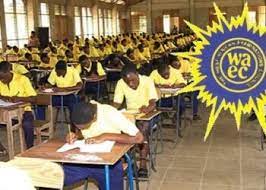There was a mild drama leading to confusion of sort when the federal government which had earlier directed the vice-chancellors of Nigeria’s public varsities to reopen the institutions, suddenly reversed itself under 24 hours.
Just early Monday morning, the news went viral via a letter signed by the Director, Finance and Accounts of National Universities Commission (NUC), Mr Sam Onazi, on behalf of the Executive Secretary of the commission, Prof. Abubakar Rasheed, that the VCs should reopen the institutions for academic activities.
The letter which was addressed to all vice-chancellors; Pro-Chancellors and chairmen of governing councils of federal universities, called on them to re-open the universities.
“Ensure that ASUU members immediately resume/commence lectures; restore the daily activities and routines of the various University campuses”, the letter reads.
ASUU had embarked on strike since February 14 to press home the demand for improved funding for universities, a review of salaries for lecturers, among other issues.
Although several meetings were held between the Academic Staff Union of Universities (ASUU) and the Nigerian government, none yielded the desired results as they all ended in a stalemate.
The federal government went to court to challenge the strike but the union insisted it would not resume but however appeal the court’s ruling.
The News Agency of Nigeria (NAN) reports that on Sept. 21, the National Industrial Court of Nigeria (NICN) in Abuja ordered ASUU to suspend its seven-month-old strike.
The judge, Polycarp Hamman, gave the order in a ruling on the federal government’s application for an interlocutory injunction against the ongoing ASUU strike.
The federal government’s counsel, James Igwe, a Senior Advocate of Nigeria (SAN), had filed the application seeking the court’s order restraining ASUU from continuing with the strike pending the determination of the suit initiated through a referral by the Minister of Labour and Employment, Chris Ngige.
Hamman, in granting the order Wednesday, dismissed ASUU’s objection to the application.
The union’s lawyer, Femi Falana (SAN), had urged the court to dismiss the federal government’s application, and instead, grant an accelerated hearing of the main suit.
Hamman agreed with the government that irreparable damage was being done to the lives of students rendered idle by the ongoing strike.
He said not granting the injunction would only cause additional damage to the ambitions of young Nigerians.
The judge cited examples of the National Youth Service Corps and employment in Nigeria’s armed forces where age is a requirement for participation and employment.
He also said the Trade Dispute Act prohibits parties from engaging in an industrial action when disputes have been referred to the industrial court, the Industrial Arbitration Panel (IAP) or when a conciliator has been appointed.
Falana, ASUU’s lawyer, had argued that the affidavit filed by Ikechukwu Wamba, a legal officer at the Ministry of Labour and Employment in support of the application should not be admitted as the deponent was neither a member of the university community nor part of any meetings held with the union.
But the judge Hamman disagreed, saying Wamba as a legal officer and a member of management at the labour ministry had access to the official documents of the negotiations as well as offering legal advice to the minister.
The judge also disagreed with Falana’s submission that the government has not made necessary moves to curtail the strike since it commenced February.
He said pieces of evidence from meetings with the government which began days after the strike until 1 September proved negotiations had been ongoing.
However, addressing reporters after proceedings, ASUU’s counsel, Edorjeh Edo, said the union has options and will study them for further actions.
“There are quite a number of actions open to the union. We will study with the legal team and then we will adopt the most appropriate action,” he said.
ASUU accused the federal government of reneging on a 2009 agreement on matters such as increased funding of universities and increasing lecturers’ salaries. (NAN)
Govt reverses self
And very quickly, the federal government, through the same NUC, Monday afternoon withdrew its circular which ordered vice-chancellors, pro-chancellors and governing councils to re-open federal universities.
The new circular ‘NUC/ES/138/Vol.64/136,’ withdrawing the order, was also signed by Onazi.
No reason was given by the latest decision.
However, in the letter titled “withdrawal of circular NUC/ES/138/Vol.64/135 dated September 23, 2022, Onazi, who signed the earlier one, said: “I have been directed to withdraw the NUC Circular Ref: NUC/ES/138/Vol.64/135, and dated September 23, 2022 on the above subject.
“Consequently, the said circular stands withdrawn. All pro-chancellors and chairmen of governing councils, as well as vice-chancellors of federal universities are to please note. Further development and information would be communicated to all relevant stakeholders.
“Please accept the assurances of the Executive Secretary’s warmest regards.”
FG free to reopen varsities – ASUU
Prior to the withdrawal order, ASUU had said the federal government was at liberty to reopen the universities, even as it said its members were still on strike.
Chairman University of Ibadan chapter of the union, Professor Ayoola Akinwole, stated this Monday in Ibadan.
Akinwole said the union never shut down universities and her members would not be in classes but would continue to do their researches and community services.
He said: “The union is on strike with her members withdrawing their services from teaching, supervising and holding statutory meetings in line with the ongoing strike.
“We remain committed to our resolve to prosecute the strike and our members have resolved not to be caged by tyrannical orders. As you know, we have appealed the Industrial court ruling.”
ASUU added: “Our members will have nothing to do with teaching, supervision nor attend statutory meetings until our demands are met and the strike is suspended by the leadership of the union.”
The union maintained that the federal government should do the needful and sign a renegotiated agreement with ASUU, pay revitalisation funds and earned allowances, among others.




